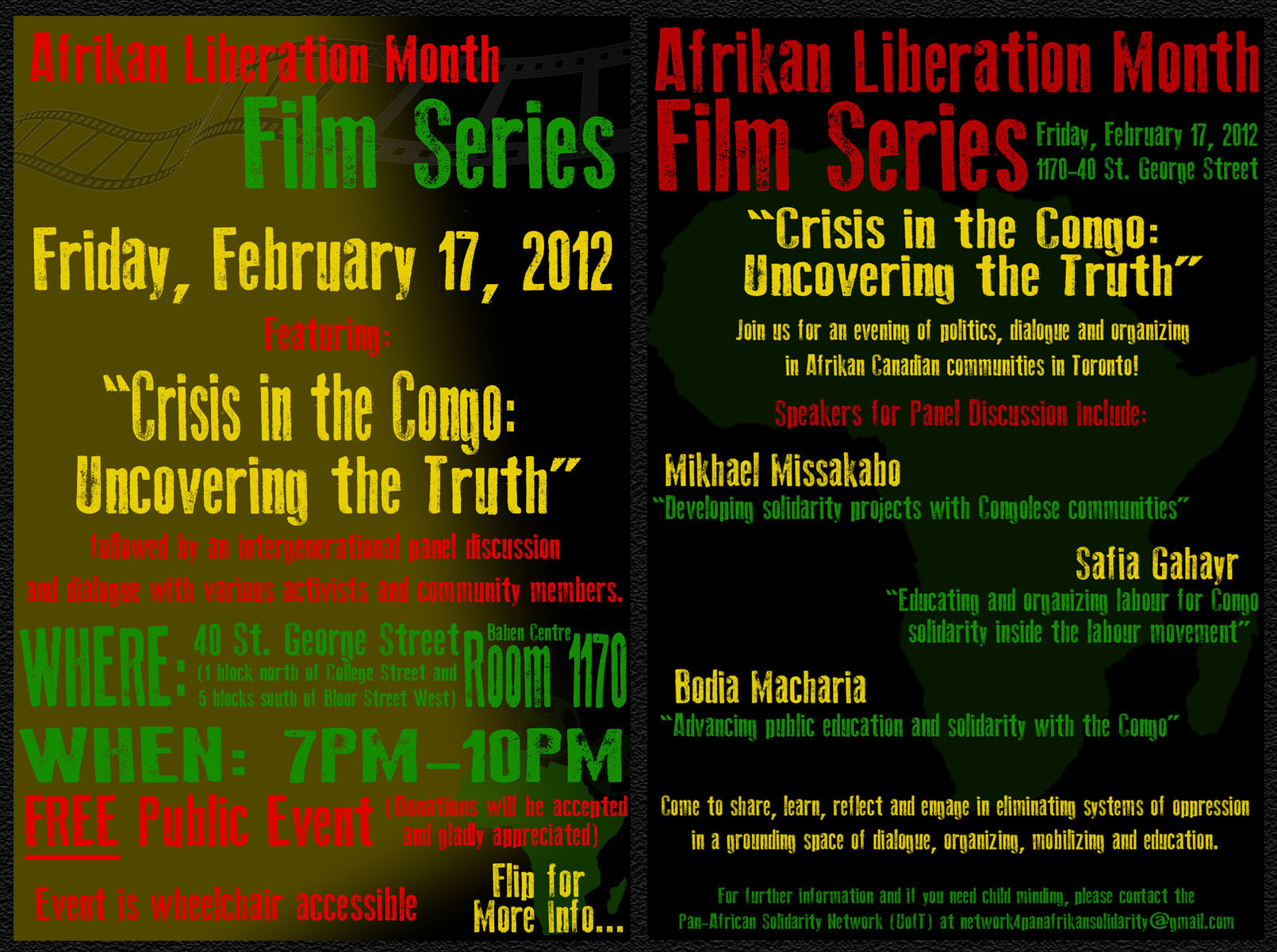With all the struggles we face as Afrikans both on the continent and in the diaspora, it is unequivocal that we take time to reflect on these issues; the sinister manifestations of white supremacy, capitalism and their imperialist expressions. Afrikan Liberation Month (ALM) is dedicated to this task of reacting and reflecting not solely on our “Black history” or “heritage,” but ultimately to continue working for our liberation. This remains a necessary and compelling goal in light of the 500 plus years of the denial of our existence as full persons.
For the last 50 years in this part of the world, the month of February has been commemorated as Black History Month (BHM), and it is a period dedicated to acknowledging particular types of contributions that have been made by Afrikan peoples in their various locations. While BHM has sometimes proven useful in creating forums to reflect upon our global experiences and contributions, more often than not it has become co-opted by the state, corporate institutions and other civil society organizations. These entities have sought to “multiculturalize” Afrikan experiences and practices, and have contextualized Afrikan histories through the lens of white supremacy. This state of affairs has allowed for situations such as when Afrikan children at schools are taught that their struggles are in the past, their hardships mere “heritage” and “history”, which do not necessarily inform, and that are not situated within current and collective liberation struggles.
The move to speak of Black History Month as Afrikan Liberation Month is intended to take this time of reflection back from its increasing commodification and the simultaneous “commiseration” enterprise that it engenders, in order to unambiguously and forthrightly engage in practices for our freedom.
Towards this pursuit, the Network for Pan-Afrikan Solidarity (NPAS) is organizing a month of film screenings and intergenerational panel discussions with the goal of reflecting on, and providing space for further strategizing towards this liberation. As we recognize that our struggles as Afrikan peoples are incontrovertibly similar, these events organized by Network for Pan-Afrikan Solidaity (NPAS) will focus on Afrikan mobilizing, educating and organizing for justice and will highlight the local and international actions that make them possible. Essentially we will focus on issues that relate directly to the material conditions and liberation struggles of Afrikans on the continent and in the diaspora.
As we seek to organize beyond mere “history” and “heritage” towards ongoing and active organization for Afrikan freedom and self-determination, we invite you to be part of these events this February. Join us as we speak of liberation and not mere commemoration, and, above all, as we agitate for — as Sekou Toure advised — “a world of redemption for Africa and all its peoples.”
All events will be held at 35 St George St, Galbraith Building room 248, University of Toronto from 7:00 p.m. to 10:00 p.m.
Friday February 17: Crisis in the Congo: Uncovering the truth
The film will explore the imperialist and neo-colonialist influences in the Congo, particularly by the US, Rwanda and Uganda, that prevent the self-determination of its people. In the panel that follows, local organizers Mikhael Missakabo from Network for Pan-Afrikan Solidarity (NPAS), Safia Gahayr, member of CUPE Ontario’s International Solidarity Committee, Bodia Macharia from the Friends of the Congo and Ameth Lo from Group for Research and Initiative for the Liberation of Africa (GRILA) will be on hand to offer more information and critical insights regarding this ongoing humanitarian crisis.
Friday February 24: The Road Taken
Through this film, we will explore an important example of Afrikan experience in Canada by looking at the journeys of Canada’s Afrikan sleeping car porters who worked on the national railway from the early 1900s to the 1960s. The film explores their persistence and resolve under severe working conditions, and the organizing that allowed for their negotiations of these circumstances. Many of these oppressive working conditions addressed in the film still prevail today, and June Veecock, community activist and former Human Rights Director of the Ontario Federation of Labour, Elbert Joseph, President CUPE local 2191 and Kalmplex, a multimedia artist and musician/poet will be on hand to discuss the challenges and prospects for fighting against the anti-Afrikan racism in the workplace, labour market and within the labour movement.
Friday March 2: Sisters in the Struggle
Our final installment, in a bid to commemorate both Afrikan Liberation Month and International Women’s day, focuses on Afrikan womyn and their dedicated work in various community and public spaces. Panelists will include Yolisa Dalamba from the Association for Part-Time Undergraduate students at UofT (APUS), Kim Crosby, a multidisciplinary artist and co-founder of The People project and Wariri Muhungi a community organizer and member of the Network for Pan-Afrikan Solidarity (NPAS). The panel discussion will explore recent histories of Afrikan womyn’s organizing and mobilizing and will address prospects and challenges of inclusive and sustainable activism (queer, trans, racial and indigenous justice).
Wangui Kimari is a member of Network for Pan-Afrikan Solidarity based in Toronto.
rabble.ca invites readers to send in their events for Black History Month and Afrikan Liberation Month to Whats Up.




